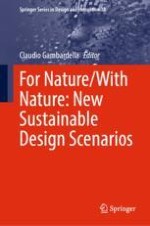2024 | OriginalPaper | Buchkapitel
Centring and Decentring the Human: New Alliances with Nature and Technology in Fashion Materials
verfasst von : Giovanni Maria Conti, Paolo Franzo
Erschienen in: For Nature/With Nature: New Sustainable Design Scenarios
Verlag: Springer Nature Switzerland
Aktivieren Sie unsere intelligente Suche, um passende Fachinhalte oder Patente zu finden.
Wählen Sie Textabschnitte aus um mit Künstlicher Intelligenz passenden Patente zu finden. powered by
Markieren Sie Textabschnitte, um KI-gestützt weitere passende Inhalte zu finden. powered by
